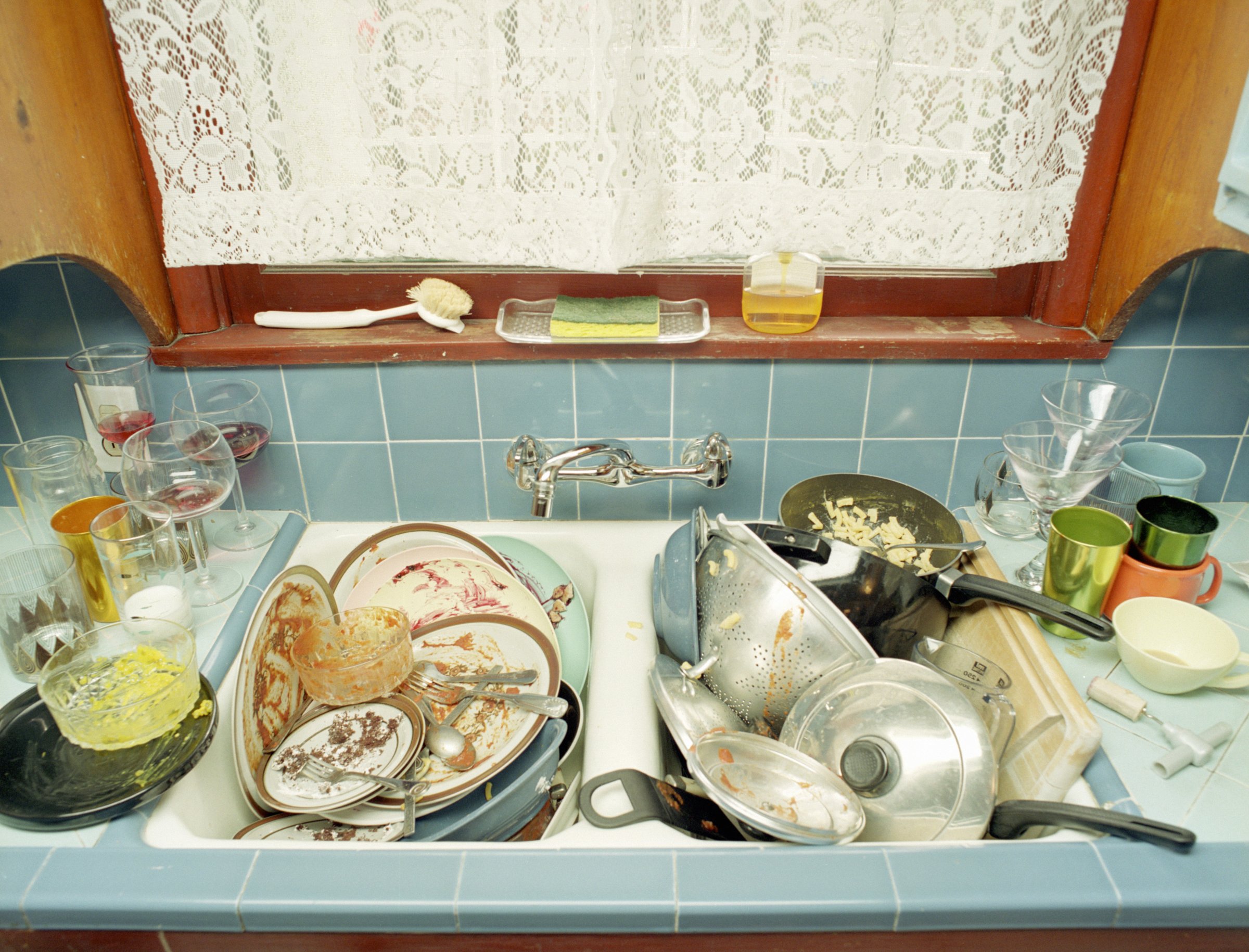
Do you struggle to resist the temptation of the cookie jar? Your cluttered countertops could be to blame. The results of a recent study by the Cornell Food and Brand Lab suggest that a messy kitchen leads to more snacking.
For the experiment, half of the study’s 98 participants (all women) were asked to wait for someone in a tidy, quiet kitchen. The other half were told to wait in a disorganized, loud one with a sink full of dirty dishes, newspapers strewn across the table and a phone ringing off the hook. Both kitchens had bowls of cookies, carrots and crackers.
Health.com: How What You Have on Your Kitchen Counter Can Predict Your Weight
The women who waited in the messy kitchen ate twice as many cookies as the first group—which came to an extra 53 calories in 10 minutes. “Being in a chaotic environment and feeling out of control is bad for diets,” explained lead author Lenny Vartanian, PhD, in a press release. “It seems to lead people to think, ‘Everything else is out of control, so why shouldn’t I be?’”
And if you’re already flustered when you walk into chaos (say, after a long, busy day), the effect seems to get worse. Some women in the study were primed with a writing exercise to feel stressed out beforehand, and when they entered the cluttered kitchen, they consumed 100 more calories than women who were primed to feel cool and collected.
Health.com: How Putting a Mirror in Your Dining Room Might Help You Lose Weight
The silver lining? Having a calm mindset seems to counteract the urge to nibble on unhealthy snacks, even when your surroundings are anything but.
Meditation might be one way to help keep your hand out of the cookie jar, suggested co-author Brian Wansink, PhD, the director of the Food and Brand Lab, in the study’s press release. However, he points out, “it’s probably easier to just keep our kitchens picked up and cleaned up.”
More Must-Reads from TIME
- Donald Trump Is TIME's 2024 Person of the Year
- Why We Chose Trump as Person of the Year
- Is Intermittent Fasting Good or Bad for You?
- The 100 Must-Read Books of 2024
- The 20 Best Christmas TV Episodes
- Column: If Optimism Feels Ridiculous Now, Try Hope
- The Future of Climate Action Is Trade Policy
- Merle Bombardieri Is Helping People Make the Baby Decision
Contact us at letters@time.com